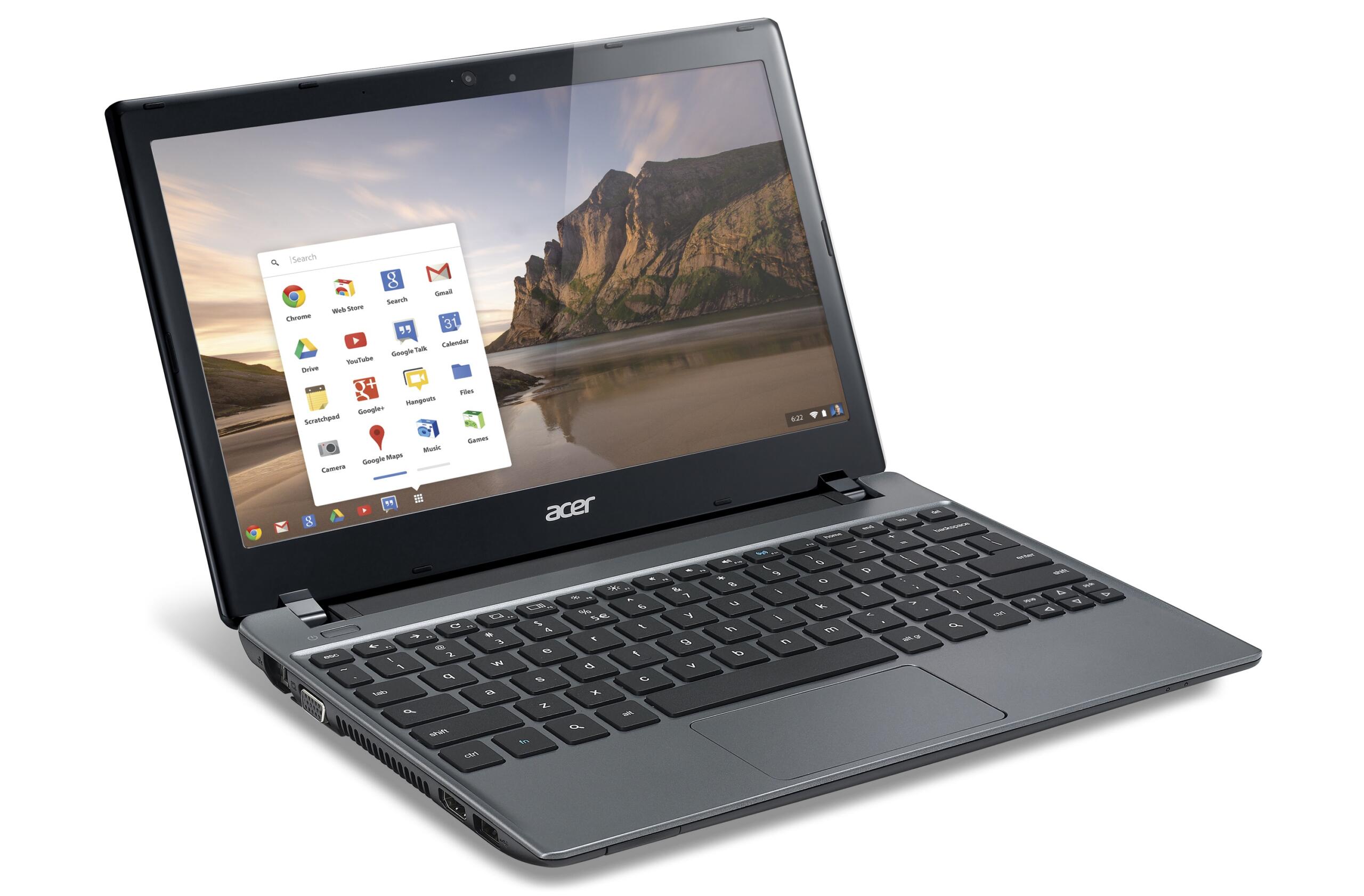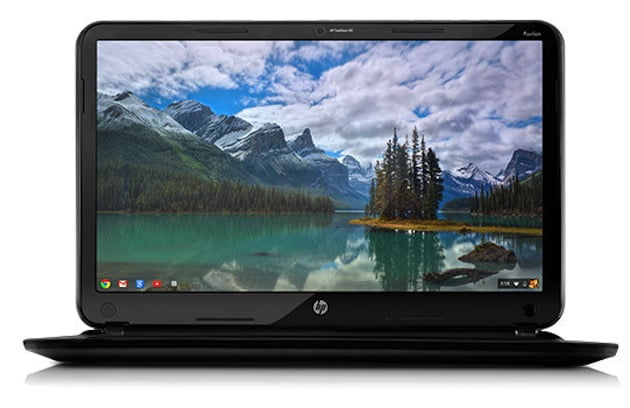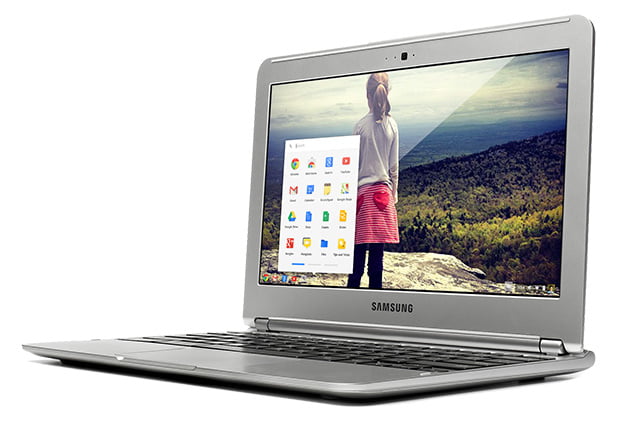What Is a Chromebook?:
Should You Get a Chromebook?:
Although Chromebooks aren’t as powerful as most typical laptops and new ultrathin and lightweight Ultrabooks, they have a lot of unique advantages in addition to their low cost. Chromebooks are by design, very simple to use: You can boot one up in seconds and resume almost instantly, and you don’t need to worry about software upgrades or security patches, since Google automatically updates the Chromebook for you. Because they’re light and thin with small displays (most have 11.6-inch or 12.1-inch displays), these ultraportable laptops might be perfect second devices for business travelers or even main laptops for students.
On the down side, however: Chromebooks run a special Google operating system, Chrome OS. So if you need to run proprietary software (e.g., Microsoft Office), you’re out of luck. There are tons of apps built for Chrome OS, however, in the Chrome Web Store besides the official Google apps. You can use Zoho, for example, for collaboration and work productivity, Pixl Editor for photo editing, and games like Angry Bird.
Another thing to take note of is that having internet connectivity, via Wi-Fi or, if available, 3G, is essential if you need to access Chrome apps that don’t work offline. Google Apps like Gmail, Calendar, and Docs do work offline, however, so if those are your primary apps, you should be fine working on a Chromebook anywhere.
In short: If most of the work you do is browser-based anyway, you’re comfortable with most of your data stored in the “cloud”, are likely to have Wi-Fi access wherever you work, and are looking for a small and light laptop, a Chromebook is a great value.
In a sense, it also can pay for itself. Google is including 100GB of Google Drive online storage space for free for two years with the Chromebooks (normally $129), plus 12 vouchers for Gogo in-air internet access (around $150 value). So you get $269 worth of freebies along with your $199 or $249 laptop. Naturally, this is only a really good deal if you use Google Drive (a given for Chromebooks) and are likely to fly in the next two years.
Current Chromebooks:
When Google introduced Chromebooks in 2011, there were two models to choose from: one from Acer and one from Samsung. Both the Acer and Samsung Chromebooks have been updated with newer hardware, and there’s now a more advanced Samsung Series 5 Chromebook and an HP Pavilion version, as well as a premium Chromebook Pixel and a ThinkPad Chromebook exclusively for education. Here’s a look at their features so you can compare.
Samsung Chromebook ($249): The best value Chromebook, in my opinion. It has a 11.6-inch (1366 x 768 pixels resolution) display, measures 0.7 inches and weighs 2.4 pounds. The Samsung Chrombook uses a special Samsung Exynos 5 Dual Processor and is rated with a 6.5-hour battery life. It comes with 16GB of storage and 2GB of memory. As for connectivity, you get 1 USB 3.0 port, 1 USB 2.0 port, HDMI, wireless-n, a VGA camera, memory card slot, and Bluetooth. VGA is available, but only with an optional dongle.
Acer Chromebook ($199): The least expensive Chromebook of the bunch, the Acer Chromebook has features similar to the Samsung Chromebook, but is a tad thicker and has a lower battery life rating of 4 hours. The display has the same specs, while this Chromebook measures 1-inch thin and tips the scale at 3 pounds. It sports a dual-core Intel Celeron processor. There’s no USB 3.0 port, but Acer packs two additional USB 2.0 ports, as well as a VGA port, memory card slot, and Ethernet port. So if you need more connectivity options (or an HD camera), the Acer might be a better bet for you.
Samsung Series 5 Chromebook ($449): Also known as the Samsung Chromebook 550, this is a more powerful version of the original Chromebook. What does an extra $200 get you? Double the RAM (4GB), an Intel Celeron Processor with integrated Intel HD graphics, larger 12.1-inch display (1280 x 800 pixels resolution), DisplayPort++ (for connecting to a display via HDMI, VGA, or DVI), and HD camera. It weighs 3.3 pounds, is about a tenth of an inch thicker (0.83 inches), and its battery life is 6 hours.
HP Pavilion Chromebook ($330): If the other Chromebooks are too small for your needs, this 14-inch Chromebook from HP might be up your alley. It’s a little hefty for a Chromebook (0.83 inches thick and 3.96 pounds), so with the large display and these measurements, HP’s Chromebook is more comparable to an Ultrabook, rather than the netbook-sized Chromebooks. It also only has a 4.25 battery life rating. Otherwise, the HP Chromebook features basic specs such as 1366×768 resolution, 2GB of memory and 16GB of storage, three USB 2.0 ports, HDMI, Bluetooth, and a memory card reader. It’s more expensive than the first two Chromebooks, at $330, but has a stronger Intel Celeron processor and does have an Ethernet port.
Chromebook Pixel ($1300): The Chromebook Pixel is the latest laptop to run Chrome OS, and it breaks the previously-set Chromebook mold. At $1300, this Chromebook costs more than six times the cheapest Chromebook, thanks to a super-high-resolution display (2560 x 1700 pixels) and better hardware (an Intel Core i5 processor and 32GB of SSD storage). Although Chrome OS is very capable and many are highly vested in webapps, the price may be too high for this Chromebook for most people (even with the 1TB free Google Drive storage for three years).
Note: 3G versions of the above Chromebooks may be available for additional cost. 100MB of free 3G access every month with Verizon Wireless is usually offered (handy for backup internet access).
Which one should you get? The Series 5 Chromebook, at $449, heads into regular laptop territory (you can find Ultrabooks on sale at this price sometimes), so personally I wouldn’t consider it except for the Google Drive and GoGo freebies. The other Chromebooks are a good value for a budget laptop; which one you get depends on your size needs, battery life usage, and connectivity requirements. You can learn more about Chromebooks and Chrome OS from Google.
- Introducing the Apple AirTag - July 20, 2023
- Slavish Thinking: غلامانہ سوچ - April 27, 2017
- Android is expected to welcome BBM before October - July 21, 2013




No Comments Yet